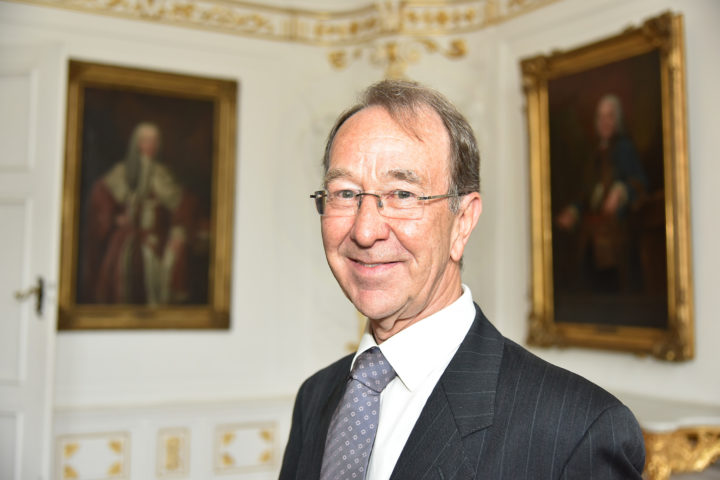
The British author and historian Sir Ian Kershaw was awarded the Charlemagne Medal for the European Media, the “Médaille Charlemagne pour les Médias Européens”, on May 3, 2018 in the Coronation Hall of the Aachen Town Hall.
Since 2000, in the run-up to the International Charlemagne Prize celebrations, the Charlemagne Medal has honored a European personality or institution in the field of the media for their special contribution rendered to the process of uniting Europe and developing a European identity.
In awarding the 18th Charlemagne Medal in 2018 the Board of Trustees of the Association “Médaille Charlemagne” honored Ian Kershaw’s services as those of a “true supporter of a united Europe”.
“In his books Ian Kershaw has impressively portrayed and analyzed modern European history. This applies particularly to his book ‘To Hell and Back. Europe 1914 – 1949’ in which he presents a European history that makes it clear where we come from as Europeans and what the strife for unification may have saved us from for many decades”, so it says in the explanatory statement of the Board of Trustees.
Marcel Philipp, Lord Mayor of Aachen, emphasized in his welcoming speech that first and foremost Europe now needs orientation. He said: “It certainly helps to have developed a historical awareness of where Europe comes from, out of which historical lows it has evolved. Ian Kershaw is a scientist whose complete lifework ensures that the look into history leads to a deeper understanding of our continent’s present times.” And he continues: “Ian Kershaw is a great European who explores the past in a scientific way to promote understanding of the present times and thusly offering goal orientation so that our continent may have a peaceful, democratic, shared future. The award he receives today is a symbolic thank you for his work and his commitment.”
Journalist and author Stefan Aust delivered the laudation for Ian Kershaw at the award ceremony. Since 2014 Aust has been the editor of the daily newspaper “Die Welt” and was also its editor-in-chief until September 2016. He stated: “Ian Kershaw is an exceptionally brilliant historian and narrator, a specialist for the darkest aspects of German history. He portrays the past in a way that it becomes part of the present times, Europe’s world of today.”
In his speech, Ian Kershaw pointed out that in a few years’ time there will hardly be any people who have experienced the times before, during and after the Second World War. “With them their reports and stories about this time will be lost. By this time the only thing left will be history itself to testify to the ever so often endless suffering that prevailed in the world at that time. To learn from history means to learn for the future. That I as a historian may contribute a little bit to this fills me with great joy. And getting this wonderful award tonight for exactly this work fills me with pride and satisfaction.”
Michael Kayser, Chairman of the Association “Médaille Charlemagne”, reminded the audience in the Coronation Hall that up to this day the European Union is a very fragile construct and that any slightly stronger upheaval can still cause great damage. Mr. Kayser stated: “Ian Kershaw sees the possibility of such an upheaval for instance in Britain’s exit from the EU, namely in that other countries might be encouraged to emulate it. To take the wind out of these countries’ sails, Ian Kershaw, contrary to many voices in his own country, has called for a tough EU stance towards Britain when it comes to the Brexit negotiations.
On the sidelines of the award ceremony, Dr. Ing. Jürgen Linden, Chairman of the Aachen Charlemagne Prize Board of Directors, said: “In his books Ian Kershaw explains to his reading public the circumstances that led to the Weimar Republic and later to the two world wars in a detailed manner. Scientifically substantiated, he impressively describes the context that ultimately led to both wars. As a reader, you always find yourself attempting to transfer events to the present day and asking yourself whether similar things could be possible even today. The question remains unanswered, but Ian Kershaw makes it clear that the association of nations in the European Union has certainly led to a greater stability and security in Europe and that it would be fatal to abandon this union.”